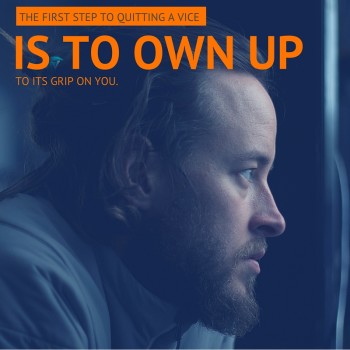Laurie Dhue was at the height of her career. She was a successful news anchor appearing on several networks and even had her own show. Meanwhile, she was killing herself with alcohol and drugs. She masterfully protected her addiction, and hid it well, fooling everyone by being at the top of her career while at the height of her misery.
We met Laurie five years into her recovery at a Design Your Life Weekend. In an interview with her, Laurie highlighted that her addiction had all the hallmarks of a very “normal” progression. Even though she was a celebrity, this was a surprisingly unimportant detail in her story. She learned firsthand that addiction is “the great equalizer” and doesn’t discriminate, no matter who you are. She explained:
Addiction is a slow, progressive disease and my story is no different in that respect. My disease progressed over a period of nearly 20 years. Unlike most people, I didn’t cut down on my drinking. The older I got, the more I drank and the more I used drugs. My motto was “work hard, play hard. I work hard, I deserve to party the way I want to. I’m making a lot of money, I deserve to party the way I want to.”
Like most of the clients we work with, Laurie had an unbelievably long list of justifications and excuses for persisting in her behavior. When battling an addiction, however, the struggle to fight these excuses is more difficult than usual. Laurie told us about how her addiction affected her:
Addiction has a lot of factors. Some people are born addicts. I believe I am one of those people. It is a family disease and it does run in my family. And then there are the lifestyle factors. For example, in my case, I reasoned it was perfectly normal to drink in college because other people were doing it. The problem was, I didn’t stop or slow down after college. Finally, there’s how hard it is to quit once you’re physically addicted. I got to the point where if I didn’t drink and drug, I didn’t feel right. I would get the shakes, I would get the night sweats, I would feel nauseous if it had been a few days and I hadn’t had a drink or a drug.
Typically addicts have to reach “rock bottom” to begin the process of recovery. But it’s our hope that we can inspire more people to ask for help before they hit “rock bottom.” Everyone in recovery has a story of the day they decided to turn it around. When will your day be? Laurie shared with us the events surrounding her “moment of grace:”
My awakening came after a series of incidents including a blackout phone call to the man I was dating, a drunken fight with my father and finding out about my sister’s pregnancy. But even more than those specific things, the sick and tired feeling I awoke with each day got to be too much to ignore. A few days after a family birthday party, during which I hid getting incredibly drunk, something shifted. I remember getting on the plane coming back to New York and thinking “I feel like I’m just a day or two away from stopping.” That night, I went to dinner with a friend, ordered a glass of wine and didn’t drink it. By the next morning, I knew I could survive without drugs or alcohol.
Laurie warned that when you do decide to take on your addiction, you’ll require a huge amount of support from family and friends. Often the confession of an addiction also breaks through the denial of your community, not just your own, and this can be very unsettling for the people who are close to you. Laurie told us what she advised for others:
I was lucky enough to be championed by my family as I attempted to save my own life. But for those who don’t get that kind of support automatically, sober friends, therapy, coaching and 12-step programs are likely going to be very important.
It’s our belief at Handel Group®, that the more you hear honest stories about addictions, moments of grace and recovery, the more likely you’ll be able to piece together your own story of triumph. If you hear something familiar in Laurie’s story or know you have your own version of dependence, now could be the time to finally start telling the truth about it and getting the support you need.
One of the reasons it’s so hard to give up addiction is a fear of the unknown. “Who am I without this drug / food / alcohol / spending? What is my life going to be about in the absence of the high I get from my addiction?” These are the questions Handel’s dreaming process forces you to answer. You have to fill your life with something. Even if you didn’t get “self esteem” from your parents or the conditions you grew up in, you can build it now by developing your Personal Integrity®. This means daring to dream of who you can be and what you could do with your life. It means fighting your mind every day to think self-supportive thoughts and taking actions that are in alignment with your highest ideals, again and again. We know you can and we want to help.
Laurie broke her addiction and turned her story of pain and dependence into a story of triumph. Now she uses it to help other people. Here’s what she told us about her new mission:
I believe that we are all put here on earth for a purpose. I think, for a while, I thought my purpose was to be a TV news anchor, but as they say in my 12-step program, more will be revealed the more that life goes on and the more that recovery goes on. And it has been revealed to me that my purpose is to help other people who are sick and suffering.
What will be the purpose your recovery reveals to you? We hope you find out sooner rather than later. If you or someone you love is suffering because of an addiction, or if food, alcohol, drugs, gambling, sex or shopping has taken precedence over meaningful love relationships, family, health, career and self-love, please get help.

